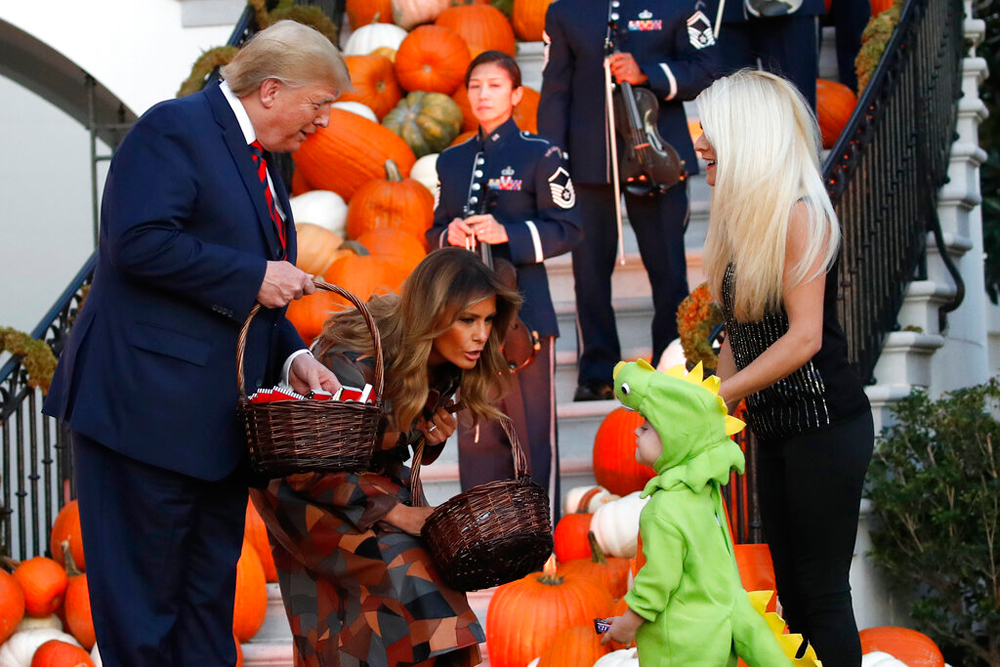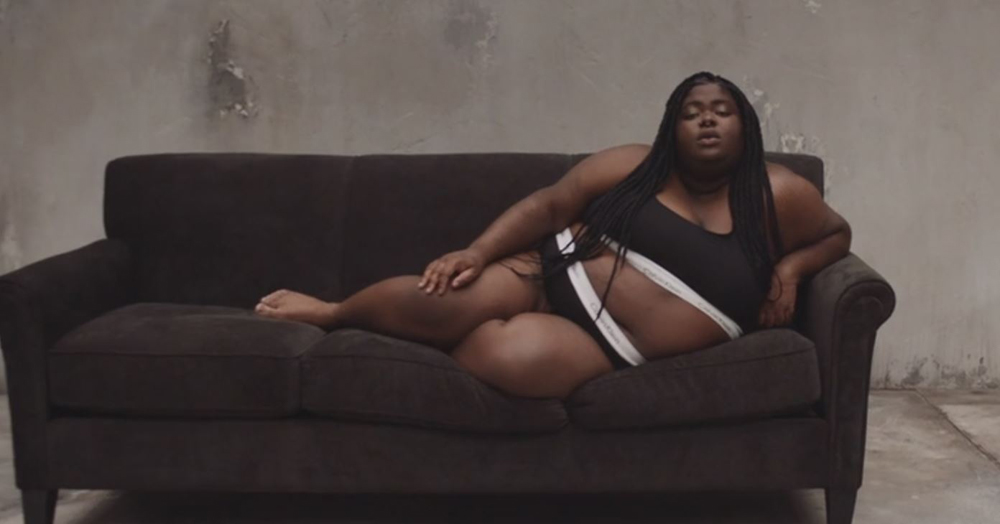Usually, a statement advocating body positivity is met with support and encouragement. But it so turns out that it can invite a backlash too. This happened in the case of a Calvin Klein billboard featuring the 22-year-old rapper, Chika. A social media influencer on Twitter shared a photo of Chika’s Calvin Klein advertisement with the caption, “Why do we need the morbidly obese to speak the truth in their Calvins? Out of all the black plus-size models that exist, you just had to pick the one that looks 5 minutes from diabetes to promote unhealthy living, Calvin Klein? You should be ashamed.” Chika responded by replying, “Someone’s mad they’re not on a Billboard”.
While there were certainly people who echoed the hateful view, many people retorted that how one looks is no indication at all of a person’s state of health. Chika rose to fame after criticising Kanye West in 2018, when the star praised the president of the United States of America, Donald Trump, and posted a photo of himself wearing a ‘Make America Great Again’ hat. Chika’s ad was part of the #MyCalvins advertising campaign, alongside more established names including Shawn Mendes, A$AP Rocky, Bella Hadid and Kendall Jenner. It was shot by Mario Sorrenti, who also photographed a 17-year-old Kate Moss in Calvin Klein underwear in the early 1990s.
The company’s chief marketing officer, Marie Gulin-Merle, told The Post, “We believe the most compelling and engaging campaigns are those that embrace not just diversity of race, body type, sexual orientation or gender identity, but also diversity of opinion and experience.”

At a Halloween celebration hosted by US president Donald Trump and First Lady, Melania Trump, children welcomed by a station where they were encouraged to help “Build the Wall” with their own personalized bricks (AP photo)
Scary sight
Halloween at the White House this year raised some eyebrows. It is typical for presidents of the United States of America to host Halloween parties and invite their staff and their children to the Eisenhower Executive Office Building. There are activities, food and candy. This year, the hosts were Donald Trump and the First Lady, Melania. But attendees, including kids, walked in and were welcomed by a station where children were encouraged to help “Build the Wall” with their own personalized bricks.
The Eisenhower Executive Office houses a large portion of the West Wing support staff and is home to the vice-president’s ceremonial office. The “Build the Wall” mural was on the first floor, outside the speechwriter’s office and next to the office of digital strategy. Young children, dressed in costume, were given brick-coloured paper cards and told to write their name with a marker pen on them and tape them to the wall. Alongside the paper wall were signs including one that read “America First” — a slogan often used by Trump and criticized because it was previously used by the Ku Klux Klan.
The wall-building activity was reportedly “concerning” to “some attendees,” and at least one guest was “horrified.” However, pictures show that many kids did end up putting their names on the mural. The staff who organized everything were told to include kid-friendly, Halloween-themed decor. Where does ‘building the wall’ fit into that?
Off the table
New York has joined California in banning the popular fine dining dish, foie gras, although the decision shall not come into effect till 2022. The step was taken by the New York City Council and will have an impact on around 1,000 restaurants. It took into account concerns of the cruel practices that go into the creation of foie gras, such as forcibly fattening up geese and ducks and then using the fatty liver to create the dish. Carlina Rivera, a Manhattan councilwoman who sponsored the foie gras legislation, told the New York Times that her bill “tackles the most inhumane process” in the food industry.
A foie gras supplier said there is no proof that the method is inhumane. “A New York City foie gras ban will cost more than 400 immigrant workers their jobs,” said Daguin, the founder of the supplier, D’Artagnan. “If humane treatment is truly the issue here, we should be looking at factory-farm practices first before we shut down small farms.” At the very least, it should spark the bigger conversation of food production in America. It is not just foie gras production that indulges in animal cruelty, but large-scale corporation-backed meat production. In 2006, Chicago became the first American city to pass a foie gras ban. Two years later, the mayor, Richard M Daley, called it the ‘silliest’ law the city had ever passed and led a successful effort to have the ban overturned.
Steps to fame
New York’s latest, hyped-up attraction is a set of stairways. The “Joker Stairs”, located between some apartment buildings in the Bronx, earned its name and fame after being featured prominently in the movie, Joker. Since the film’s release, fans have flooded to the stairs, posed for photos and uploaded them. The Joker Stairs are the site of one of the movie’s most memorable scenes, in which Arthur Fleck, played by Joaquin Phoenix, embraces his murderous Joker identity and dances down the long stairway near his apartment.
When fans learned that the scene was filmed at the outdoor staircase connecting the Bronx’s Shakespeare and Anderson Avenues, they thronged to the site. Many wore costumes and Joker makeup, and played music from the film’s soundtrack. Images tagged #JokerStairs started appearing on Instagram. One video shows two Jokers playing table tennis on a landing. But the hype has led to some tension. Tourists or people from other boroughs might be excited about posing in front of a place important in pop culture, but local residents see it as a set of stairs drawing unwanted attention.

Airbnb will be banning ‘party houses’ as a direct response to the deadly shooting during a Halloween party at an Airbnb rental (Shutterstock)
Party house ban
The CEO of Airbnb, Brian Chesky, announced that the company will be banning ‘party houses’ and reinforcing efforts to stop “abusive host and guest conduct”. This is a direct response to the deadly shooting during a Halloween party at an Airbnb rental. Guests of the home in Orinda, California threw a party for more than 100 people (in a room that had a maximum occupancy permit of 13) even though the owner had stated that parties are not allowed on the property. Five people were fatally shot.











